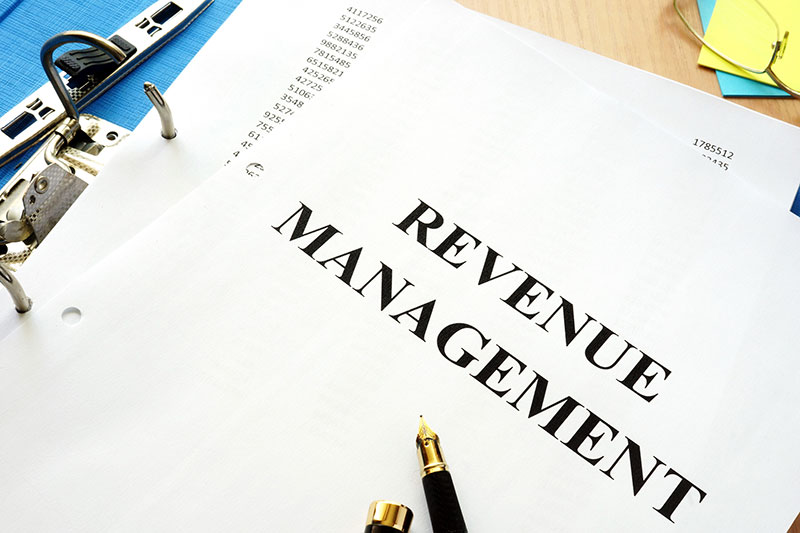All businesses accumulate vast amounts of raw data and managing this information properly is essential to stay competitive. Data entry and document conversion services play a key role in converting paper documents into various digital format, which streamlines management and allows information to be shared and analyzed. By analyzing data, businesses can identify trends and patterns and get valuable insights for strategic decision making. Today, data analytics is proving critical for revenue management.
What is Revenue Management?
Revenue management involves the use of data analytics to predict consumer behavior and make decisions the pricing of individual products and services. When conceived and implemented correctly, revenue management optimizes financial performance. The concept of revenue management is especially applicable in industries such as hospitality and airlines which have a perishable inventory. Based on consumer demand trends, prices can be adjusted to increase earnings and sales by selling the right product to the right customer at the right time for the right price using the right tools through the right channels (hospitality.net). In the hotel industry, revenue management aims to provide the right room to the right person at the right time and place, which will maximize revenue and profit.
Role of Data Analytics in Revenue Management and New Challenges
Effective revenue management depends on integrating data from various systems and sources and analyzing the information to implement the right strategies to optimize resource use and revenue. A LinkedIn article lists the key areas where data analytics impacts revenue management in the hotel industry as:
- Pricing Decisions: Data analytics helps revenue managers make pricing decisions. By studying past trends and comparing competitor pricing patterns, they can determine the ideal prices for rooms in each category.
- Channel Management: Analyzing data is important to identify which channel is performing well, seasonality of bookings, the region from where more bookings are coming, the sale prices of various room categories on different channels, and more. This information can be utilized to maximize revenue from each channel.
- Booking Patterns: Analyzing data on demand for different room types based on region, season, and market segment, managers can forecast occupancy and design appropriate pricing strategies.
- Data Filtering: Analyzing and processing relevant data will help in the generation of accurate and timely reports for informed decision making.
However, today, revenue management tactics have gone beyond pricing and inventory management. The conventional method of analyzing historical demand patterns such as booking lead times, booking patterns by segments, and occupancy trends by season, day, week or month to determine the best possible room rate at a given point of time has become obsolete. Analyzing performance and estimating demand and demand patterns have become unpredictable as they are dependent on multiple external factors.
The hospitality and airline industries are particularly vulnerable to disruptions such as economic crises, wars and epidemics. Though these sectors usually recover fast from such disasters, the COVID-19 pandemic has badly affected their resilience and ability to bounce back. Revenue managers have to rethink their data and analytics strategy to optimize operations and profits.
New Elements in Data Analysis for Revenue Management
For hotels to survive and stay competitive in the COVID world, experts recommend that data analytics for revenue management should include the following:
- Real-time Market Demand Indicators: According to a hospitality net article, it is essential to have a complete understanding of the competitor landscape for competitive pricing. Hotel prices for every room type and individual options available for each room type should be analyzed 365 days in advance. Knowing these real-time market demand indicators is important to ensure optimal pricing for every potential new booking.
- Inbound Search Volume by Source Market: Examining real-time trends in flight and booking search volume can provide an idea of how demand for a destination grows over time, notes Atomize. Predicting which dates will see increased demand over time before reservations begin can help hotels adjust rates in advance and get bookings at optima rates.
- Macro Perspective of Demand: Various factors impact demand pressure for a destination: travel agent hotel booking searches, how often hotel prices change, hotel cluster search analytics, and flight search data trends. Understanding these factors is important to understand market demand and ensure appropriate pricing.
- Online Reputation Ranking: Before they book a hotel room, most customers will compare the online reputation scores of hotels available across various online booking platforms. People typically rank their stay experience based on factors such ambience, cleanliness, comfort, location, facilities, staff, value for money, etc. While a hotel will not have a direct control over its reputation score, its service delivery standard will impact these factors. Revenue management strategies need to incorporate reputation data analytics to understand what’s important to potential guests.
- Data on Flight Search and Potential Travel Patterns: In the COVID-19 scenario, analyzing flight search data is especially important for hotel revenue management. Hotel bookings and stays are closely linked to flight travel patterns. Understanding flight search data is crucial to identify travel intent and hotel booking prospects.
Let us consider how data analytics is vital for the hospitality industry to manage and increase revenue.
Why Data Analytics Continues to Be Vital for Enhancing Revenue in the Hospitality Industry
According to a recent study that was reported in a Revnomix article, businesses that employ data analytics have innovation cycles that are 25% faster, their efficiency is enhanced by 17%, their R&D is more effective by 13%, and their products or services are 12% better. How can hotel revenue be increased by using data analytics? Data analytics provides helpful information on how to manage resources, design better strategies, and understand customers. Here are a few examples of how applying data analytics might boost revenue.
- Proper Segments: The correct market segments must be created in order to target products or services to several market segments. Guest segments based on data analytics can help businesses create more specialized marketing campaigns to meet the needs of their target market. This means that your firm will be able to increase revenue from a variety of segments by providing goods and services based on real-time data.
- Accurate Forecasts – Planning is key to a business’ success. It’s how you distribute resources, identify trends, and make important decisions. Through careful data analysis and the use of predictive analytics, precise forecasts are produced. Managers can better adapt to shifting demand and increase revenue by using data analytics.
- Automation of work – Automated data analytics refers to routine chores that are carried out by computers with little to no human involvement. Simply said, this enables the personnel to focus on activities that are more important. It makes it possible for businesses to manage “Big data,” including data gathering, maintenance, and other tasks. Most of the advantages result from increased production and better service quality.
- Know your firm’s strengths and weaknesses: Business entrepreneurs nowadays are more conscious than ever that they face significant obstacles. The ability to anticipate, adapt, and shift course in the face of change can be the difference between success and failure in the hospitality industry. But you need to be conscious of your strengths and shortcomings if you want to be able to adjust to change. Businesses can analyze their operations using data analytics to identify areas where they might perform better.
- Provide Customized Digital Experiences – Products and services are tailored to the particular requirements and preferences of your visitors. Your company can design customized digital experiences with targeted messages for particular guest segments. This will strengthen the relationships between customers and your establishment, increase brand loyalty, and sales.
- Guest analysis: Any business can use data analytics to design the most effective marketing plans that speak to both its existing and future customers. These details such as age, gender, income, spending patterns, etc. benefit businesses and their capacity to boost revenue.
- Historical analysis – Data analytics can reveal the causes and effects of visitors’ actions at each stage of their journey. By including insights from behavior research in their marketing campaigns, companies can make them more flexible.
Relevance of Data Analytics in the Post Covid Scenario
Data analytics’ contribution to income growth, business recovery, and even optimization is now widely acknowledged and embraced in every sector. Data analytics assists in analyzing all the information obtained and extensively evaluating it to reveal which elements of your value chain have been harmed by post-lockdown public behavior, which of your products and services are losing or gaining customers, and which of your revenue predictions are not as expected.
In the aftermath of COVID, the hospitality sector operates in a world drastically changed by alterations in consumer demand, demands for more health and safety, and apprehensions about the future of the economy. It acts as the compass directing the revival of the sector. It gives organizations the ability to monitor and improve safety procedures by providing real-time information on occupancy rates, hygienic compliance, and health trends. Data analytics also makes it possible to personalize visitor experiences, which is essential for satisfying modern client demands. It assists in pricing optimization and effective resource allocation by precisely predicting demand changes. With data analytics, firms can adjust their marketing methods to appeal to wary tourists; it aids in supply chain management, assuring uninterrupted operations. Data analytics also streamlines financial efficiency and regulatory compliance in a post-pandemic society.
Effective data analytics depends on having clean data in the required format. Data entry outsourcing can ensure that even complex data is organized properly so that different visualizations and analysis can be performed effortlessly. Outsourcing companies also provide document conversion services to convert unstructured content into data that is ready for analysis. Relying on professional solutions can make data analytics easier for revenue managers in these challenging times.




